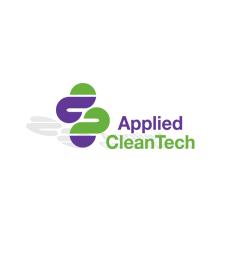
By Greentech Lead Team: Applied
CleanTech, a provider of technology for recycling solids from waste water into
quality commodities, has signed license agreements with two distributors, one
in Israel and one a joint Jordanian and Palestinian Authorities (PA) group.
The Israeli
distributors will install ACT systems in at least 3 facilities during 2012. The
Jordanian PA distributors have committed to orders in a minimum of 5 facilities
during the next two years.
The company
said Applied CleanTech operates a waste water recycling system at a waste water
treatment plant operated by Global Environmental Solutions in Omer. The
facility recycles municipal waste water for 10,000 residents. The company
signed a tender for the installation of an additional system for the WWTP in
Zfat which handles the waste water for 30 thousand residents.
“We are
happy about the technology franchise agreements which enable us to expand our
geographical deployment and to provide a significant reduction of costs for
local authorities. Correspondingly, we are continuing the marketing of the
technology in Western Europe, where there is a high demand for environmental
technologies which reduce damage to the environment while also significantly
reducing the existing high waste water treatment costs,” said Refael
Aharon, CEO of Applied CleanTech.
Applied
CleanTech increases the facility’s capacity for incoming solids. The ACT system
enables reduction in the amount of sludge created in the treatment process by
over 45 percent, an increase of the WWTP capacity by over 20 percent and a
reduction of the energy consumption and the polymers consumption. It enables a
reduction of accompanying odor problems during the treatment process and an
improvement in general plant maintenance.
The Applied
CleanTech technology has the ability to avoid the creation of sludge by
removing these elements from the waste water instead of the usual process which
turns these elements into sludge. Applied CleanTech’s process includes the
recycling of the elements separated from the waste water into commodity
products such as recycled pulp. The entire operation is entitled to Quality of
Environment stock due to the reduction of GHG emissions and use of alternative
fuel.
